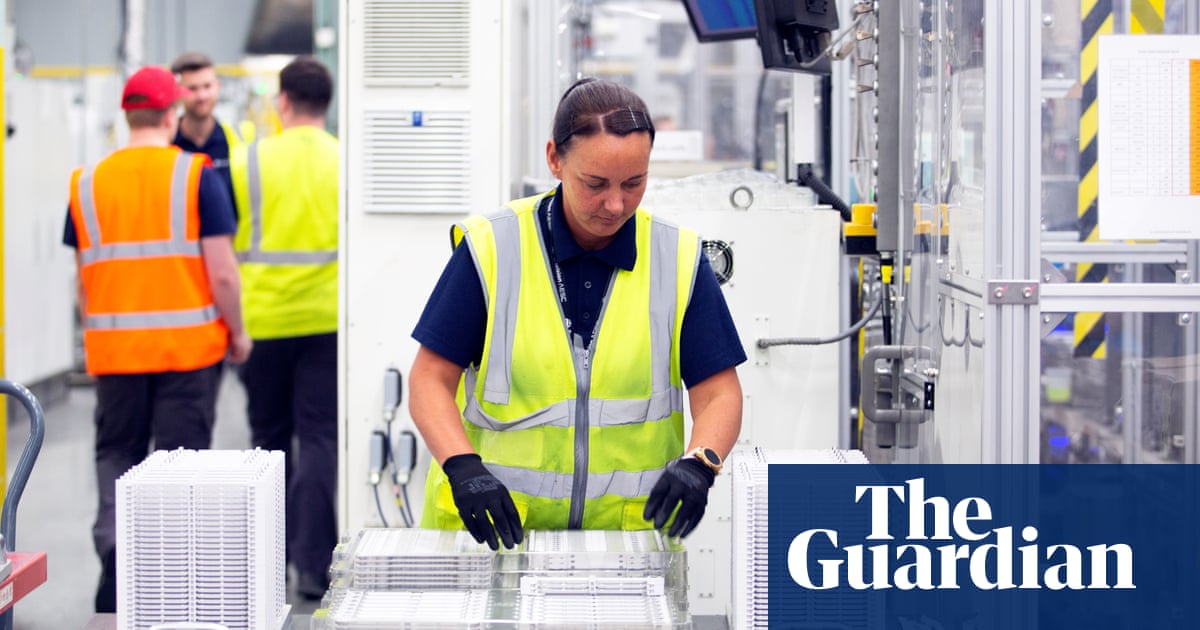Japan’s AESC has announced it will build a second gigafactory inSunderlandto produce electric vehicle batteries, after it secured a £1bn debt funding deal backed by a £680m guarantee from the UK government.
The National Wealth Fund and UK Export Finance, both state bodies, will provide financial guarantees that unlock the £680m in financing for the battery maker. A further £320m in debt funding will come from private financing as well as new equity from the business.
The £1bn investment will fund building and operating of the new plant in Sunderland, which is expected to employ more than 1,000 people and power up to 100,000 electric vehicles a year.
The chancellor,Rachel Reeves, who was in Sunderland for the announcement, said the deal would boost British industries’ resilience and encourage growth. “This investment in Sunderland will not only further innovation and accelerate our move to more sustainable transport, but it will also deliver much-needed high quality, well-paid jobs to the north-east, putting more money in people’s pockets,” she said.
The business secretary, Jonathan Reynolds, described the investment as “yet another vote of confidence in the north-east’s thriving auto manufacturing hub”.
The news came just a day after the UK and the US agreed a trade deal thatdramatically reduced Donald Trump’s tariffson imports of cars, aluminium and steel.
The US has agreed to cut the tariffs on up to 100,000 British cars to 10%, down from the 27.5% rate Trump initially announced. The US is the main export market for British cars, worth more than £9bn in 2024.
Keir Starmer, appearing at aJaguar Land Rover factory in the West Midlands on Thursday, said the deal would protect British businesses and “save thousands of jobs”.
The new AESC plant in Sunderland is expected to be able to provide up to 15.8GWh battery supply when it operates at full capacity. That will represent an increase of almost six times on the current level of UK gigafactory capacity.
Sign up toBusiness Today
Get set for the working day – we'll point you to all the business news and analysis you need every morning
after newsletter promotion
The National Wealth Fund’s financial guarantee to AESC will replace an initial £200m short-term bridging loan that it announced in January 2024, before it transitioned from UK Infrastructure Bank to its current structure.
The fund, whichwas launched by Reeves last year, is designed to help projects such as ports, gigafactories, hydrogen and steel. The Leeds-based fund has £27.8bn that it can use to offer loans, and make equity investments and financial guarantees.
